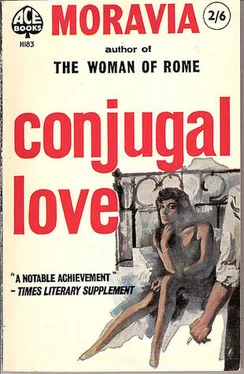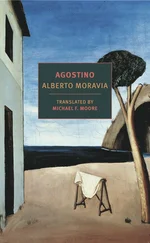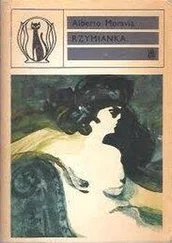Perhaps I ought to have been put on my guard, in the midst of a happiness so complete, by one particular aspect of my wife's attitude, which, anyhow, I think I have already mentioned — her goodwill. In her, clearly, love was not so spontaneous as in me; and there was discernible in her manner towards me an undoubted though mysterious desire to please me, to satisfy me, sometimes even to flatter me — exactly, in fact, what is generally, and not without a trace of contempt, called goodwill. Now it is difficult for goodwill not to conceal something which, if it were by chance revealed, would contradict it and endanger its effects; something that may range from the mere presence of different, hidden preoccupations to actual duplicity and treachery. But I accepted this goodwill as a proof of her love for me and did not worry, at the time, to investigate what it might conceal, or what the meaning of it might be. I was, in fact, too happy not to be selfish. I knew that, for the first time in my life I was in love and, with my usual, rather indiscreet enthusiasm, I attributed to her also the feeling that occupied my own mind.
I HAD never spoken to my wife about my literary ambitions because I felt that she would not be able to understand them, and also because I was ashamed to have to confess that they were no more than ambitions, or rather, vain attempts which had never so far been crowned with any success. That year we spent the summer at the seaside, and towards the middle of September we began to discuss our plans for the autumn and winter. I don't know how it came about that I then alluded to my barren efforts; perhaps I may have referred to the long period of idleness into which marriage had led me. 'But Silvio, you never told me about it,' she exclaimed at once. I answered that I had never spoken of it because, up till that moment, anyhow, I had never succeeded in writing anything that was worth talking about. But she, with her usual affectionate eagerness, merely replied by urging me to show her something I had written. This invitation made me immediately realize that her curiosity flattered me enormously and that, in the long run, her opinion was just as important to me as that of a professional man of letters, if not more so. I knew perfectly well that she was ignorant, that her taste was unreliable, that her approval or her condemnation could have no value; and yet I felt that it now depended upon her whether I continued to write or not. When she insisted, I put up a show of resistance for a short time, and then, having warned her repeatedly that the things I had written were unimportant and that I myself had rejected them, I agreed to read her a brief story that I had written a couple of years before. As I read, it seemed to me that my story was not as bad as I had formerly thought it; and so I went on reading in a firmer and more expressive tone of voice, looking at her every now and then out of the corner of my eye as she sat listening attentively, not showing in any way what effect it was having upon her. When I had finished, I threw the pages aside and exclaimed: 'As you see, I was right, it was not worth talking about.' And I waited with a strange anxiety for her opinion. She was silent for a moment, as though collecting her impressions, and then she declared, in a decided and peremptory manner, that I was entirely wrong in not attributing any importance to my talent. She said that she liked the story although it had many defects, and she adduced a number of reasons to explain and justify her pleasure. It was not (and how could it have been?) the criticism of an expert; but all the same I felt curiously encouraged. It suddenly seemed to me that her reasons, which were indeed those of an ordinary person with ordinary tastes, might well be worth those of the most refined men of letters; that, after all, there was perhaps in me a tendency to excessive self-criticism, more injurious than useful; and that, in fact, what I had hitherto lacked was not so much talent, perhaps, as affectionate encouragement such as she was at that moment heaping upon me. There is always something false and humiliating in a success amongst one's own family, amongst people whose affection makes them indulgent and partial: a mother, a sister, a wife are always ready to recognize in us the genius that others obstinately deny us, but at the same time their praises do not satisfy us, and we sometimes feel them to be more bitter than frank condemnation. Now I felt nothing of all this with my wife. It seemed to me that she had really liked the story, quite apart from the affection that she bore me. Besides, her praises were discreet and reasoned enough not to seem merely pitying. I asked her, in the end, almost timidly: 'Well then, you really think I ought to go on and persevere?. . Think well over what you say. . I've been working for at least ten years without any result… If you tell me to go on, I'll go on. . but if you tell me to stop, I'll stop and never touch a pen again.'
She laughed and said: 'You're putting a great responsibility on to me.'
I insisted: 'Speak as though I were not what I am in relation to you, but a stranger. . Say exactly what you think.'
'But I've already told you,' she replied, 'you ought to go on.'
'Truly?'
'Yes, truly.'
She was silent for a moment and then added: 'Now look. . let's do this. . Instead of going back to Rome, let's go and spend a month or two at the villa in Tuscany. . You can get down to work there, and I'm sure you'll write something really good.'
'But you — you'll be bored.'
'Why? You'll be there. . besides, it'll be a change for me. . it's so many years since I've led a quiet life.'
I must admit that it was not so much her reasons and her encouragements that persuaded me as a kind of superstition. I thought that for the first time in my life a kindly star was watching over me, and I said to myself that I ought to assist, in every possible way, this unexpected trend of fortune in my favour. With my wife I had already found the love to which I had aspired in vain for so many years; and perhaps love would now be followed, in its turn, by literary creativeness. I felt, in fact, that I was on the right road; and that the beneficial effects of our meeting were not yet entirely exhausted. I embraced my wife, telling her jokingly that from henceforth she would be my Muse. She did not seem to understand the expression, and asked me again what my decision was.
I answered that, as she had suggested, we would go to the villa in a few days. A week later, in fact, we left the Riviera for Tuscany.
THE villa lay in a kind of hollow, at the foot of some medium-sized mountains, facing a wide, flat cultivated plain. It was surrounded by a small park thickly planted with leafy trees; so that there was no view at all, even from the windows of the top floor, and one could imagine oneself, not at the edge of a plain studded with farms and criss-crossed with fields, but in the depths of a great forest, in a hermit-like solitude. In the plain, at no great distance from the villa, lay a big village. The nearest town, on the other hand, was an hour's cart-ride away, on the top of one of the hills that rose at the back of the villa. It was a medieval town, surrounded by battlemented walls, with palaces, churches, convents, museums; but, as often happens in Tuscany, it was much poorer than the ugly modern village that commerce had brought into being in the plain below. The villa had been built about a hundred years ago — judging, at any rate, by the height and size of the trees in the park. It was a plain, regular building, with three floors and three windows to each floor. At the front of the house was an open, gravelled space, shaded by two horse-chestnut trees; from this space a winding drive led to the park gate and then, beyond, along the old surrounding wall to the main road. The park, as I have already said, was small in extent but thickly timbered and full of shady retreats; its limits were not clearly defined except on one side.
Читать дальше












